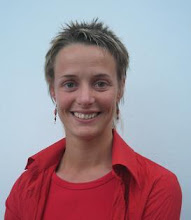Lee la descripción de lo que a una profesora de inglés le pareció un verdadero reto cuando empezó la formación.
Learning to listen and value participant contributions
“And one of the participants said something. And I just didn’t understand what she was saying. I just thought that what she was saying didn’t really make sense. And I think I made a comment which upset her. […]
And I realized that you really have to listen very carefully and not get bogged down in your own ideas but be ready to understand other people’s train of thought. I realised that that is something that requires a lot of effort. But you still have to do that and, I mean, you cannot just make comments on people’s contributions or judge them.”
Importance of ‘stock-taking’ and summaries
“Another thing that I would say I learned on the course is that it is important to summarise the work, or the ideas that have come out of the course from the participants. I remember my trainer and me sitting at the computer and collating the information, the ideas about fieldwork and we prepared that table with everybody’s ‘trouble-shooting’ guide to doing fieldwork. So there is some kind of outcome by the end of a course that’s important and the outcome should be the outcome of the participants.”
Planning
“What I focused on […] was the use of proper handouts. Handouts which included some quotes, some ideas of food for thought and they came from the compulsory reading…[…] I had to make sure that I help the students become familiar with the compulsory reading as well. So I prepared handouts and I prepared tasks to go with those ideas that I just picked from the reading. […]
It was sort of an attempt on my part to be very organised professionally. It helped my planning the whole course and I was also hoping it would help to see the aims and the content of the whole course much better and what we were up to. So basically it’s kind of like thinking through the course: what you want as an outcome. I think I’ve become more conscious and I also can think in terms of a larger framework as well, for instance, where do we start this course, not just in terms of the sessions by themselves.”
Gyöngyi Végh,
EFL teacher and teacher trainer, Hungary
¿Cuáles fueron los mayores retos para ti?
viernes, 9 de octubre de 2009
Suscribirse a:
Enviar comentarios (Atom)

Efectivamente es fundamental aprender a escuchar y dar importancia a las contribuciones de los participantes. Me refiero no solo a dejar que hablen, hacer algún comentario positivo a propósito o no juzgar negativamente; sino a esforzarse por incorporar positivamente la contribución a la materia.
ResponderEliminarLa idea de elaborar un “resumen” con las contribuciones de los participantes que pueda servir para todos es muy bonita y puede servir como una actividad de evaluación para nosotros.
También me gusta la idea de focalizar en el marco general en que se inserta el curso que estamos dando y no solo en el cursito que se nos ha asignado.
Estoy de acuerdo con la profesora húngara y Cristina. Muchas veces es muy difícil llegar a un consenso entre los participantes. Uno de los mayores retos puede ser resumir los aportes de cada persona y también ser una fuente de reflexión para encontrar una salida a un tema de discusión controversial.
ResponderEliminarAdemás, es vital mantener siempre los objetivos del curso bien claros. A veces se puede caer en la planificación del día a día y descarrilarse un poquito de la meta final.
Otro de los retos más específicos podría ser mantener el interés de los participantes siempre alto.